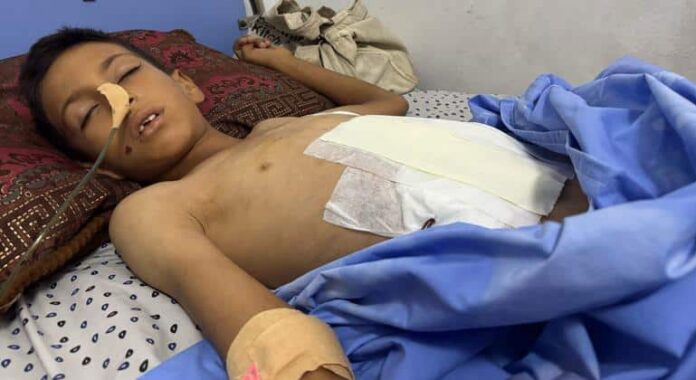The hospitals in the Gaza Strip are experiencing an unprecedented collapse due to an alarming increase in incidents of violence, with eight cases per day, according to the UN Office for the Coordination of Humanitarian Affairs. This situation has overwhelmed the healthcare centers in the region.
In addition, there is a worrying rise in cases of Guillain-Barré syndrome, a rare disease that has resulted in three deaths, including two children. Before the conflict began in October 2023, this disease was uncommon, with only a few annual cases. However, there are currently around 64 confirmed cases, which is putting additional pressure on the already weakened healthcare system.
The shortage of medical resources is critical. An attack destroyed the World Health Organization's main medical warehouse in Deir Al-Balah, complicating the supply of intravenous immunoglobulin, essential for treating Guillain-Barré syndrome. Thirty percent of patients with this disease require intensive care, but the lack of supplies makes it almost impossible to provide the necessary treatment.
Meanwhile, hospitals are facing an increase in meningitis cases without enough antibiotics to treat them, which has led to implementing isolation measures to control the situation.
The humanitarian crisis extends to the food sector. The World Food Programme warns of the urgency of allowing the entry of massive humanitarian aid. With 500,000 people on the brink of starvation and at least 200 deaths from malnutrition, the situation is desperate. Only 8.6% of arable land is accessible, and less than 2% is intact, which exacerbates the food crisis in a territory that hosts more than two million people.
Human rights experts call on the international community to intervene, restoring the UN's humanitarian system and denouncing the restrictions imposed by Israel as an inhumane use of famine in the conflict. The preservation of life in Gaza requires immediate and decisive actions. Without them, the future of their inhabitants hangs by a thread.



